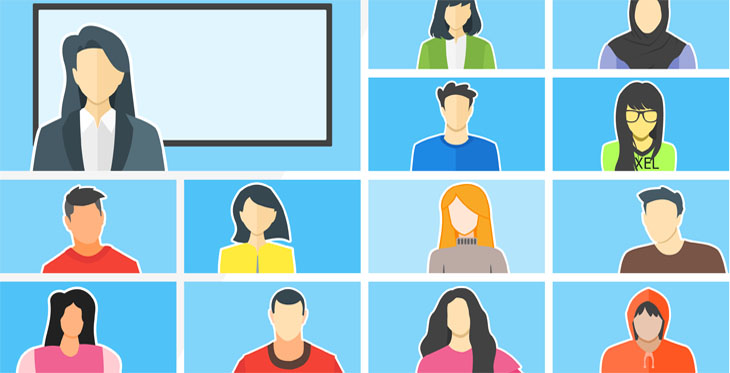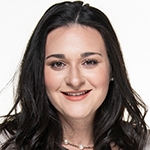Every summer the five regional Arizona Area Health Education Centers (AzAHEC) join forces to put together a program to expose high school students to the vast array of health careers. Called Future Health Leaders (FHL), the initiative typically selects 40 high school students from across the state to reside at one of the state’s Universities for a week-long experience discovering health professions.
Like many others coordinating in-person programs and events, the COVID-19 pandemic presented us with two options; to cancel or to go virtual. With camp scheduled for the second week of June, we had about two months to design and implement a totally virtual, but interactive, experience that would be meaningful and engaging for high school students.
At several points through the week of camp, 16 simultaneous zoom meetings were occurring for small group discussions and mentoring opportunities between campers and current health professional students acting as counselors. Virtual live sessions and activities presented by experts from various academic institutions from across the state for nearly 300 students filled the week.
FHL also had an asynchronous component consisting of additional activities that provided deeper exposure into several health disciplines, exploration of Arizona’s health professions certificate, undergraduate and graduate programs, and soft skills like resume writing, effective communication, and goal setting. Students had the option to choose which lessons to complete based upon their interests.
Majority of students attending FHL camp are from rural and underserved areas, and many will be first generation college students. Another objective of camp is to provide students with college preparedness, career readiness, empowerment, support and mentorship from others who have similar interests. Find friends, mentors, support systems. One student confided with her counselor that this is the first time she has ever had the chance to express her desires to pursue a health career and attend higher education. This above else is why we exist. To create a safe space for those to grow, experience, seek support and learn from others with similar backgrounds who proceeded them how to go about their path and conquer their goals. They are not alone.
Shifting to an online platform had several benefits. First and foremost, FHL camp was able to provide 300 high school students from all corners of the state a meaningful experience. This is a 650% increase from prior years when capacity was limited in-person. Secondly, a wider variety of activities were offered that cater to student’s unique interests as many resources and opportunities for personal exploration were provided. Additionally, experts from several places from around the state were able to participate virtually. Finally, but equally as important, overall costs decreased 70% from prior years. If you are keeping track, hundreds of more students were able to participate in a robust program for a fraction of the cost. That is efficiency!
Reflecting back now that camp is over, several hurdles were jumped and lessons learned. Here is a brief summary of my top 3 take-aways:
- Contrary to (our) popular belief, most students (even in rural and underserved areas) have access and a desire for online programming. We thought some barriers to our target population would be interest in sitting behind a screen for a week, after they had to finish out the school year online and many didn’t have internet access or software capabilities. Neither were true. We offered hardware solutions and at the end of the day, only 3 of the students requested support.
- A resiliency mindset conquers above all else. Choosing to see barriers, shortcomings and inexperience as opportunities for growth and the willingness to adapt to ever-present change is paramount. It is naïve to believe this is the last crisis to throw a wrench in our programming but resiliency and adaptability will allow us to triumph always.
- Do not let a crisis go unwasted. It is easy to cancel. It is easy to throw your hands up, bow out and wait until “this is over.” We took an almost impossible opportunity and made it a success. The rewards are sweet.
Above all the hiccups, road blocks and just the sheer mad dash to develop, market and implement an online program for hundreds of high school students, our eyes were opened to the endless possibilities and opportunities that exist to provide educational programming for students across the state, especially for those located in faraway remote and rural areas (who are arguably those who need it most). Virtual programming overcomes many barriers we face when developing and delivering youth programs: location, transportation and space (capacity).
Virtual meetings are not a new phenomena. But like many others developing and implementing local programs for youth, going virtual was never the preferred option. FHL camp changed our perspective. Post coronavirus era, virtual programming will be here to stay and become a part of “our new normal.” It is nice to know our participants are along for the ride.
The Central Arizona Area Health Education Center (CAAHEC) is an organization on a mission to empower the next generation of healthcare professionals through workforce development programs. Learn more at caahec.org.

